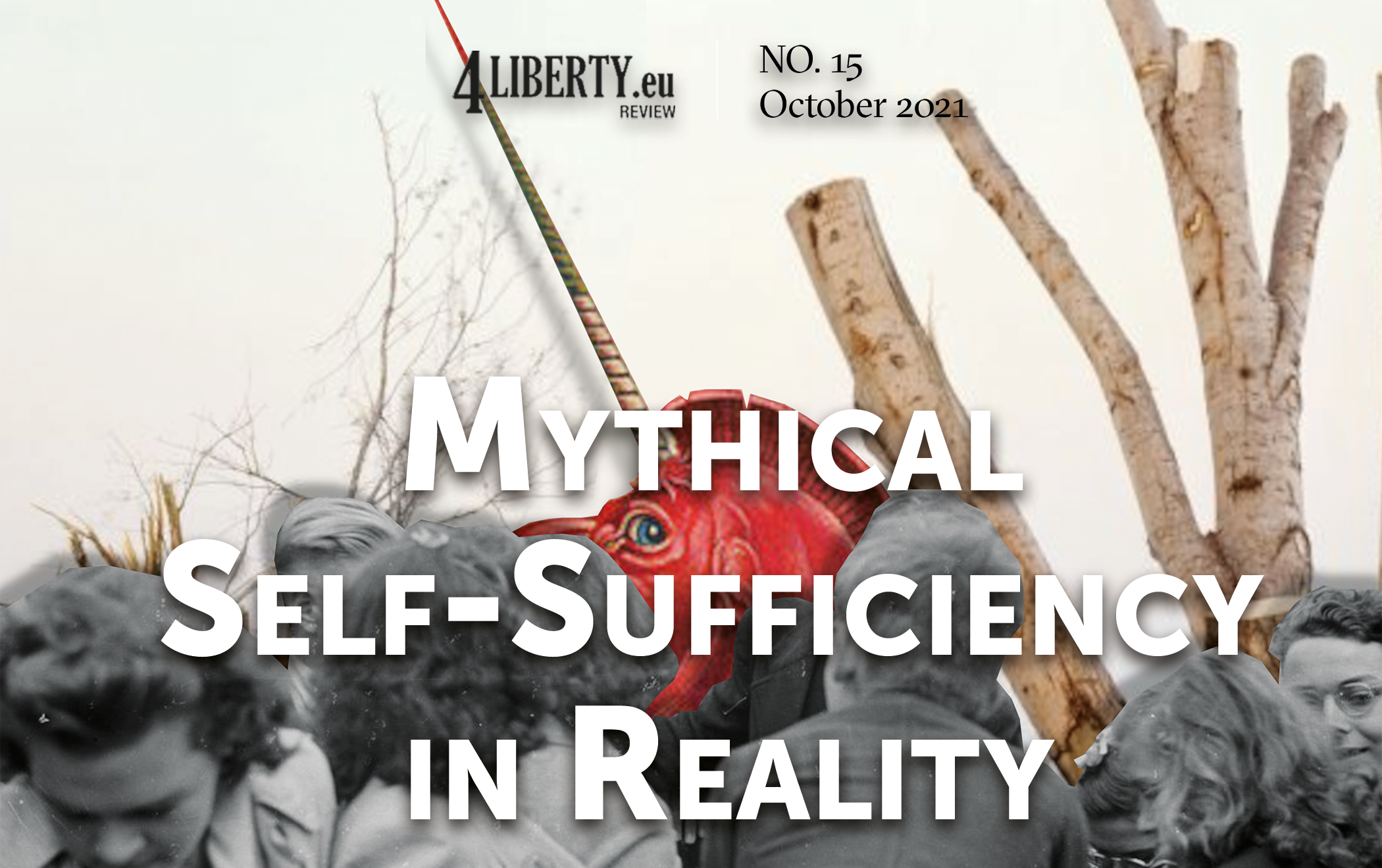INESS was part of the fifteenth issue of 4liberty.eu Review “Mythical Self-Sufficiency in Reality”, which we are pleased to present. This time, our primary focus is on autarky, as it continues to be viewed by numerous CEE governments as an appealing idea to follow.
Protectionism is a frequently used political tool. Sometimes, it is hidden in complicated laws, other times it is presented quite openly. As society is witnessing a wave of populist and nationalist ideas in Europe, especially in Central and Eastern Europe (CEE), protectionist ideas are still widely accepted.
Politicians across the political spectrum bring up the question of autarky, or selfsufficiency in general, whenever they want to gain attention and stir emotions. Whether it concerns food supplies, protective equipment, medicine, or fuels, all of these can be seen as too important to be in the hands of the market.
What proponents of self-sufficiency omit is the fact that the state of wealth we are currently witnessing is a result of the market economy, not autarky. No tools and ideas from the command economy could ensure more prosperity. But like economist Frederic Bastiat described in his concept what is seen and what is not seen, the majority of people tend to see only the first and direct effects of a political idea, neglecting its secondary and long-term consequences.
However, fighting for self-sufficiency in a political campaign does not mean that the political party has the tools to ensure it. This is the case in several countries (Slovakia, Czechia, Poland, etc.), where governments passed poorly prepared laws in order to favor domestic production. The result: no self-sufficiency, but many costs related to adopting these policies and legislative chaos.
People who believe in personal and economic freedom should not cherry-pick ideas which intend to support protectionist policies – like self-sufficiency. Of course, citizens would like to see their home country become prosperous, but the way to achieve this is to cooperate with the outside world, not to close the borders and adopt protectionist measures.
Post-communist countries were the ones that have experienced decades of closed borders and poverty. Despite this fact, there are still people who felt some kind of security during this era, to which they look back with nostalgia, or even people, who have not witnessed a planned economy, but imagine that the world back then was better. The clash between people who were able to flourish thanks to the market economy versus those who cherish the memory of a secure socialist state is still present and will probably last for another several years.
In order to keep freedom, the market economy and its benefits, the voice of liberalism has to be present. This is also the case of this issue of 4liberty.eu Review, which is a compilation of articles dedicated to the topic of self-sufficiency. The authors look back to history, analyzing case studies from Poland, Czechia, Ukraine, Slovakia, and even Latin America, and show how ideas of autarky occur in different areas and sectors, although the main foundation stays the same. Politicians are still claiming to protect the domestic market, but in practice creating no real changes or even the opposite – harming domestic producers and consumers. This is precisely why the voice of experts and activists needs to be heard in the public discourse. Otherwise, the general public will have no access to the other side of the coin, which shows the costs of these harmful policies.
The Reader should pay attention to the various problems existing in CEE countries, which are often addressed by politicians in a populist or nationalist manner. Of course, the opinions about the best solutions may differ, but the main benefits of openness stay the same. In this regard, it is interesting to read about the creative reasons brought up by politicians on how self-sufficiency should be implemented. In Czechia, a law about an obligatory portion of Czech agri- food products on supermarket shelves was highly discussed. The list of domestic products contained even salt, despite the fact that there are no salt mines in the country. Although the COVID-19 pandemic has been a huge challenge for humanity, it also brought up some positive political change. This is the case in Ukraine, where the pandemic triggered an overall facilitation of trade in certain products.
The process of transforming to market economies was not easy nor smooth, but it brought gains in wealth and a better standard of living for ordinary people in CEE. We should be aware of policies which aim to step back to isolationist times, when the top-down approach limited any personal determination and ambitions. Entrepreneurship and openness to trade should be rewarded, not punished, because of poor political objectives. Therefore, we need to keep emphasizing the importance of defending economic freedom both in the near and the distant future.
Below, you may download the full issue HERE.








